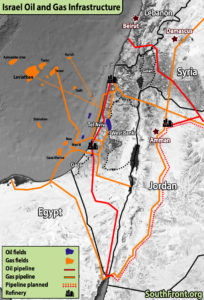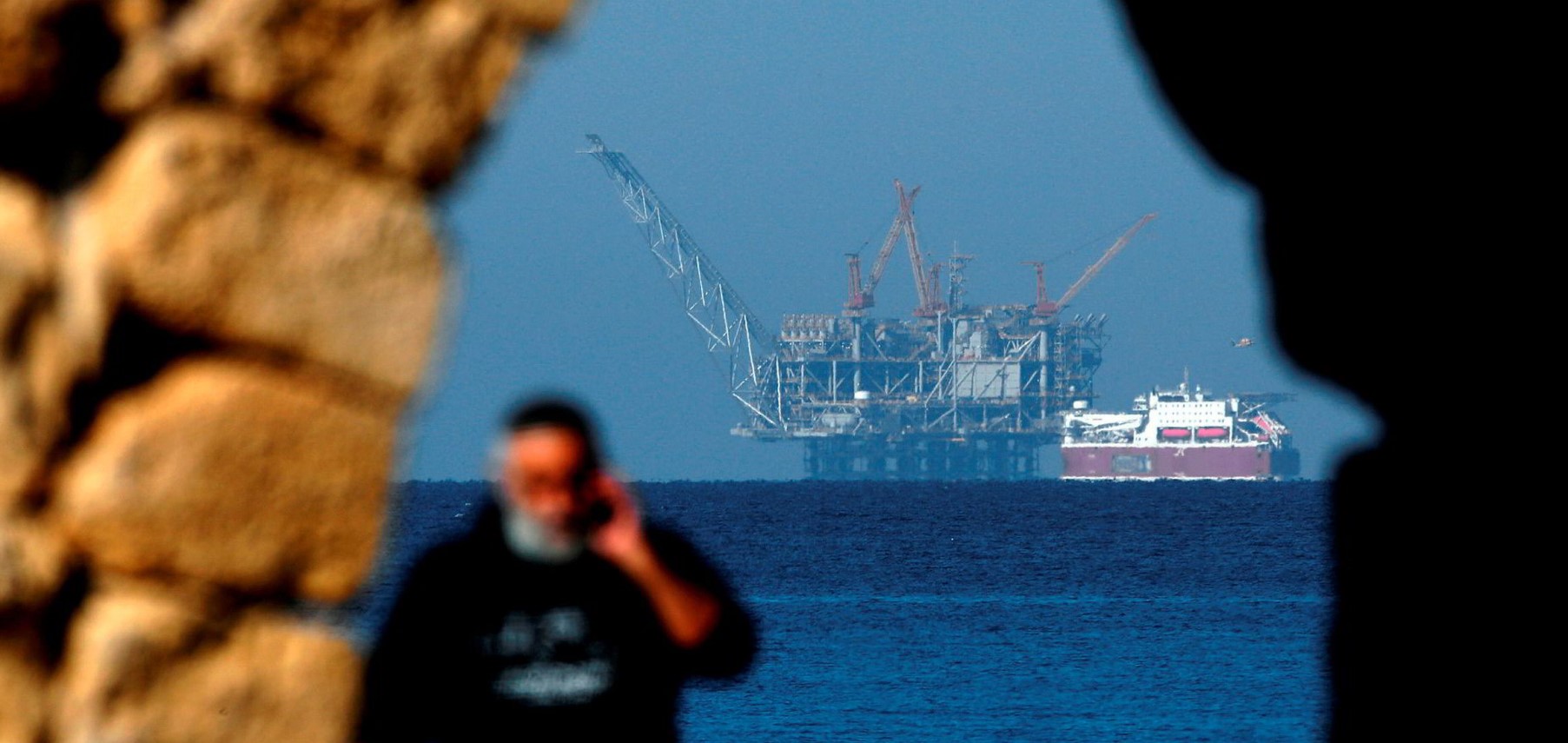Written by Piero Messina
Follow the gas to understand one of the geostrategic reasons for the war between Hamas and Israel. It’s the same old story, wars are fought for reasons of national security and for money. Gas is a fundamental resource for the economies of the future. Opposite the Gaza Strip there is an immense treasure that could bring electricity and wealth to the Strip and the rest of Palestine, emancipating the country from international humanitarian aid. The field is called Gaza Marine and is located approximately 36 kilometers from the Palestinian coast, at 610 meters deep. According to estimates, it would contain 1,000 billion cubic meters of gas and provide revenues of 4.5 billion dollars, a stable source of energy supply for homes, water desalination plants and for the development of agriculture. This treasure, discovered almost a quarter of a century ago, has never been exploited by the opposition in Tel Aviv. The new conflict that broke out in the Strip came just when Israel and the Palestinian Authority, with the intermediation of Egypt, seemed to have found an agreement to start work on the field.
The gas field was discovered in 1999 by British Gas. The development of the Gaza marine field is potentially a central pillar for energy security in Palestine, contributing to self-sufficiency in energy production by reducing dependence on imported energy sources. The cost of developing the Gaza marine field is estimated at $1 billion. According to the decision of the Council of Ministers of Palestine, the development rights consist of an alliance between the Palestine Investment Fund and the Consolidated Contractors Company (CCC) at 27.5% each according to the rights granted to them by the current licensing agreement.
The remaining 45% will be allocated to an international development company subject to approval by the Palestinian Council of Ministers. In 2021, the parties involved in the Gaza gas field, the Palestine Investment Fund, the Egyptian Natural Gas Holding Company (EGAS) and the Consolidated Contractors Company signed a “Memorandum of Understanding on Cooperation for the Development of the Gaza Gas Field and the necessary infrastructure, the purpose of which is to meet Palestine’s natural gas needs, to strengthen cooperation between the two states and to export part of the gas to Egypt. Talks are ongoing between the two parties to reach an agreement for the development of the field which will have a significant impact on the energy sector in Palestine.”
Speaking precisely about gas management, in recent years Hamas has criticized the Palestinian Authority’s “monopoly” on Palestinian decisions. Hamas spokesperson said on Twitter that “It is a shame that Palestinian Authority and Fatah officials in Ramallah are selling the Palestinian people the illusion of running a state.” Adding that the Palestinian Authority has failed to realize any of the national aspirations of the Palestinian people.
The Gaza Marine field has always been the subject of political ambitions and media campaigns have brought nothing concrete. It was September 2000 when the then leader of the Palestine Liberation Organization (PLO), Yasser Arafat, appeared on TV to announce the discovery of natural gas off the coast of Gaza. A year earlier, Arafat had signed a contract with the British company British Gas to conduct research in the waters assigned to Palestine under the 1995 Oslo II Accords. For the PLO leader, the discovery was “a gift from God” to the Palestinian people for generations to come. “This will provide a solid foundation for our economy, to create an independent state with holy Jerusalem as its capital,” he declared boarded on a fishing boat.
The enthusiasm did not last long: first the outbreak of the second Intifada, and then the arrival of Hamas gave strength to the Israeli resistance, which effectively blocked any project of exploitation of the Gaza Marine. Tel Aviv wants a slice of the gas extracted: for Israel, short of its own resources, it is also a question of security in its energy supply. The seizure of power in Gaza by Hamas in 2007 made the picture even worse. “A turning point was the Israeli military operation in Gaza in December 2008 – wrote Mahmoud Elkhafif, coordinator for Palestine of Unctad, a UN agency – Following the operation, the Palestinian natural gas fields they were effectively placed under Israeli control without regard to international law. The question of sovereignty over the Gaza gas fields is crucial. From a legal point of view, the gas reserves belong to the occupied Palestinian territories.”
The real problem is that the Palestinian government has never had the ability to transform that right into concrete works. To build plants capable of exploiting that gas field, the skills of companies such as British Gas, which later merged with the giant Shell, are needed. But the British, who at a certain point began to negotiate directly with Israel bypassing the Palestinian Authority, are unable to find an agreement. Moreover, Tel Aviv has now discovered that it is richer in gas than it believed: still in the sea, it finds two gigantic deposits, first the Tamar and then the Leviathan, which allow it to resolve the eternal energy crisis and even become an exporting country. In Tel Aviv it will take 4 years to start up the Tamar in 2013, while in 2019 the Leviathan will also go into production. Record times, especially when compared with those of the Gaza Marine.
But in 2018, Shell abandoned the project. In its place, alongside the sovereign wealth fund of Palestine, comes the Consolidated Contractors Company, a company created by a Palestinian Christian, Said Khoury. The other half of the Gaza Marine rights pie remains with Palestine’s sovereign wealth fund. The change of ownership, however, does not break the deadlock.
In 2019, the UN published a report with the unequivocal title: “The economic costs of the Israeli occupation for the Palestinian people: the unrealized potential of oil and gas”. According to United Nations calculations, the field is worth 4.5 billion dollars in revenue over a twenty-year period. A sum that would allow the West Bank and Gaza to emancipate themselves not only from Israel to produce their own electricity (the Palestinian Authority pays Tel Aviv a energetic “bill” of around 22 million dollars every year), but also to reduce, and not slightly, the dependence on international aid for its economy and for the reconstruction of the Strip.
Now the situation has become complicated for Israel too. As a result of the war, Israel had to suspend activities at the Tamar gas field in the Mediterranean Sea: it is located about twenty kilometers off the coast of Ashdod, a city located on the southern coast of Israel. The mining platform is vulnerable because it is within range of any missiles launched from the Gaza Strip.
Tamar is an important field especially for Israeli energy demand, but part of its output is exported to Egypt and Jordan. In its turn, a portion of the Israeli gas sold to Egypt is exported by the latter to Europe in the form of liquefied gas (LNG) from the Damietta and Idku terminals: the Damietta plant is co-managed by the Italian company Eni.
Last October 10, Chevron – the US oil company that manages the Tamar site – suspended exports of Israeli gas to Egypt and Jordan via the East Mediterranean Gas (EMG) submarine pipeline.
EMG is the main connecting infrastructure between Egypt and the Leviathan field: it is the largest Israeli gas field, also located in the waters and also managed by Chevron. The flows passing through the EMG had been moved to another pipeline, the Arab Gas Pipeline, which reaches Jordan and Egypt.
At the end of October, however, Egypt announced that gas imports from Israel were zero, probably – Bloomberg wrote – due to the closure of the Tamar field. It is reasonable to expect that the European Union will receive less LNG from Egypt, which is already struggling to meet its electricity demand.
The Hamas attack has complicated Israel’s gas extraction and export operations, and therefore its plans to transform it into an energy hub for the European market.










